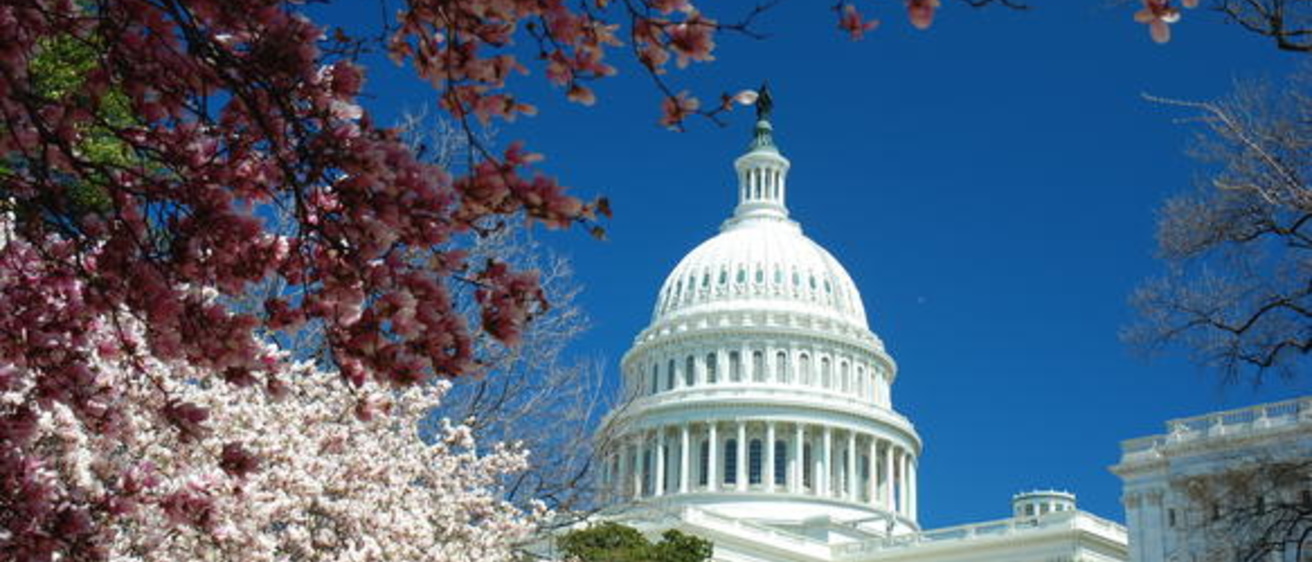As director of the Obermann Center, I often represent the University of Iowa at national meetings. In March, I headed to Washington, D.C. to the annual meeting National Humanities Alliance (NHA) and its Annual Advocacy Day along with Colin Gordon, UI professor of history, and Derek Willard, Special Assistant to the President and Associate VP for Research in the UI Office of Governmental Relations.
The NHA members include colleges and universities, leading professional organizations like the Modern Language Association and the American Historical Association, and national organizations such as the American Academy of Arts and Sciences and the American Council of Learned Societies. Each year they gather to discuss discoveries and challenges.
This year, the digital humanities held center stage. Colin Gordon discussed his linked book and web project, Mapping Decline: St. Louis and the Fate of the American City (U Pennsylvania P, 2009). Colin has built an archive of maps that show how ill considered public policies shortchanged a once prosperous city. The archive has drawn so much public attention from community groups, city councils, urban planners, and historians that the website has developed a life of its own. Colin’s graphic story of “urban renewal” sets a high bar for urban history.
Though English professor Ed Folsom was not in D.C., his digital presence loomed large. Kenneth Price, English professor at the University of Nebraska, discussed The Walt Whitman Archive, which he co-directs with Ed. In the summer of 2011, Ed welcomed scholars from around the world, including Ken, to an Obermann Center Summer Seminar to discuss the issues involved in translating this quintessentially American poet’s work into different languages as the Whitman Archive reaches out to students, scholars, and readers across the world. (Please note that we are currently accepting applications for directing the 2013 Summer Seminar.)
Richard Brodhead, President of Duke University and the keynote speaker, closed on a high note: “Pleasure, enriched awareness, command of words, the citizen's disposition toward others, equipment to navigate a multi-cultural global environment: humanities training is at the core of every one of these, and of at least one thing more,” said Brodhead. “For the humanities are a key enabler of creativity. To create a new thing, you have to envision a possibility where none is apparent, and this is a skill that improves with practice.”
Inspired by our collective mission as scholars and teachers and armed with a quiver of arguments and strategies to support the National Endowment of the Humanities (chaired by another illustrious Iowan, Jim Leach), we headed the next day to Capitol Hill for a whirlwind visit with Iowa senators and congressmen. We were among 107 advocates who visited 121 House and Senate offices representing 32 states. Colin, Derek, and I shared success stories about our colleagues and urged our representatives to support the National Endowment for the Humanities and other research and fellowship programs.
We can’t all visit the Hill on a regular basis, but we can support the arts, humanities, and qualitative social sciences by writing regularly to our representatives. The NHA sends clear, succinct bulletins when either House is about to vote on an issue that will crucially affect the humanities and higher education. All you have to do is click to write your representatives. For updates, visit the NHA website.
You can also join us in Washington next March. With luck, we’ll once again arrive right along with the cherry blossoms!
~ Teresa Mangum, Director, Obermann Center
